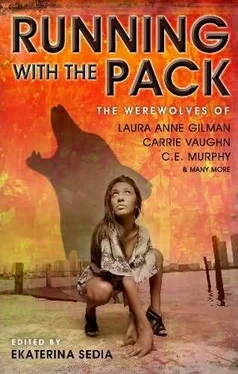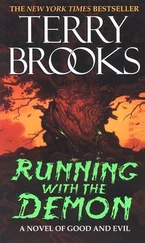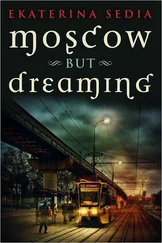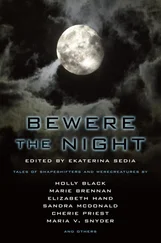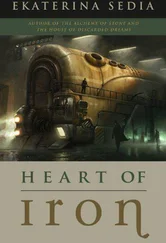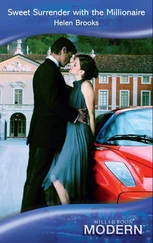The painting takes your breath away. This old woman is beautiful. You know the painter, a nineteenth-century English duke, thought so too.
You know Jonathan wouldn’t.
You decide, once again, to try to talk to Jonathan. You make him his favorite meal, serve him his favorite wine, wear your most becoming outfit, gray silk with heavy silver jewelry. Your silver hair and blue eyes gleam in the candlelight, and the candlelight, you know, hides your wrinkles.
This kind of production, at least, Jonathan still notices. When he comes into the dining room for dinner, he looks at you and raises his eyebrows. “What’s the occasion?”
“The occasion’s that I’m worried,” you tell him. You tell him how much it hurts you when he turns away from your tears. You tell him how much you miss the sportfucks. You tell him that since you clean up his messes more than three weeks out of every month, he can damn well clean up yours when you’re on four legs. And you tell him that if he doesn’t love you any more, doesn’t want you any more, you’ll leave. You’ll go back home, to the village on the edge of the forest near an Alp, and try to make a life for yourself.
“Oh, Stella,” he says. “Of course I still love you!” You can’t tell if he sounds impatient or contrite, and it terrifies you that you might not know the difference. “How could you even think of leaving me? After everything I’ve given you, everything I’ve done for you—”
“That’s been changing,” you tell him, your throat raw. “The changes are the problem. Jonathan—”
“I can’t believe you’d try to hurt me like this! I can’t believe—”
“Jonathan, I’m not trying to hurt you! I’m reacting to the fact that you’re hurting me! Are you going to stop hurting me, or not?”
He glares at you, pouting, and it strikes you that after all, he’s very young, much younger than you are. “Do you have any idea how ungrateful you’re being? Not many men would put up with a woman like you!”
“ Jonathan !”
“I mean, do you have any idea how hard it’s been for me? All the secrecy, all the lying, having to walk the damn dog—”
“You used to enjoy walking the damn dog.” You struggle to control your breathing, struggle not to cry. “All right, look, you’ve made yourself clear. I’ll leave. I’ll go home.”
“You’ll do no such thing!”
You close your eyes. “Then what do you want me to do? Stay here, knowing you hate me?”
“I don’t hate you! You hate me! If you didn’t hate me, you wouldn’t be threatening to leave!” He gets up and throws his napkin down on the table; it lands in the gravy boat. Before leaving the room, he turns and says, “I’m sleeping in the guestroom tonight.”
“Fine,” you tell him dully. He leaves, and you discover that you’re trembling, shaking the way a terrier would, or a poodle. Not a wolf.
Well. He’s made himself very plain. You get up, clear away the uneaten dinner you spent all afternoon cooking, and go upstairs to your bedroom. Yours, now: not Jonathan’s anymore. You change into jeans and a sweatshirt. You think about taking a hot bath, because all your bones ache, but if you allow yourself to relax into warm water, you’ll fall apart; you’ll dissolve into tears, and there are things you have to do. Your bones aren’t aching just because your marriage has ended; they’re aching because the transition is coming up, and you need to make plans before it starts.
So you go into your study, turn on the computer, call up an internet travel agency. You book a flight back home for ten days from today, when you’ll definitely be back on two feet again. You charge the ticket to your credit card. The bill will arrive here in another month, but by then you’ll be long gone. Let Jonathan pay it.
Money. You have to think about how you’ll make money, how much money you’ll take with you—but you can’t think about it now. Booking the flight has hit you like a blow. Tomorrow, when Jonathan’s at work, you’ll call Diane and ask her advice on all of this. You’ll tell her you’re going home. She’ll probably ask you to come stay with her, but you can’t, because of the transitions. Diane, of all the people you know, might understand, but you can’t imagine summoning the energy to explain.
It takes all the energy you have to get yourself out of the study, back into your bedroom. You cry yourself to sleep, and this time Jonathan’s not even across the mattress from you. You find yourself wondering if you should have handled the dinner conversation differently, if you should have kept yourself from yelling at him about the turds in the yard, if you should have tried to seduce him first, if—
The ifs could go on forever. You know that. You think about going home. You wonder if you’ll still know anyone there. You realize how much you’ll miss your garden, and you start crying again.
Tomorrow, first thing, you’ll call Diane.
But when tomorrow comes, you can barely get out of bed. The transition has arrived early, and it’s a horrible one, the worst ever. You’re in so much pain you can hardly move. You’re in so much pain that you moan aloud, but if Jonathan hears, he doesn’t come in. During the brief pain-free intervals when you can think lucidly, you’re grateful that you booked your flight as soon as you did. And then you realize that the bedroom door is closed, and that Jessie won’t be able to open it herself. You need to get out of bed. You need to open the door.
You can’t. The transition’s too far advanced. It’s never been this fast; that must be why it hurts so much. But the pain, paradoxically, makes the transition seem longer than a normal one, rather than shorter. You moan, and whimper, and lose all track of time, and finally howl, and then, blessedly, the transition’s over. You’re on four feet.
You can get out of bed now, and you do, but you can’t leave the room. You howl, but if Jonathan’s here, if he hears you, he doesn’t come.
There’s no food in the room. You left the master bathroom toilet seat up, by chance, so there’s water, full of interesting smells. That’s good. And there are shoes to chew on, but they offer neither nourishment nor any real comfort. You’re hungry. You’re lonely. You’re afraid. You can smell Jonathan in the room—in the shoes, in the sheets, in the clothing in the closet—but Jonathan himself won’t come, no matter how much you howl.
And then, finally, the door opens. It’s Jonathan. “Jessie,” he says. “Poor Jessie. You must be so hungry; I’m sorry.” He’s carrying your leash; he takes your collar out of your underwear drawer and puts it on you and attaches the leash, and you think you’re going for a walk now. You’re ecstatic. Jonathan’s going to walk you again. Jonathan still loves you.
“Let’s go outside, Jess,” he says, and you dutifully trot down the stairs to the front door. But instead he says, “Jessie, this way. Come on, girl,” and leads you on your leash to the family room at the back of the house, to the sliding glass doors that open onto the back yard. You’re confused, but you do what Jonathan says. You’re desperate to please him. Even if he’s no longer quite Stella’s husband, he’s still Jessie’s alpha.
He leads you into the backyard. There’s a metal pole in the middle of the backyard. That didn’t used to be there. Your canine mind wonders if it’s a new toy. You trot up and sniff it, cautiously, and as you do, Jonathan clips one end of your leash onto a ring in the top of the pole.
You yip in alarm. You can’t move far; it’s not that long a leash. You strain against the pole, the leash, the collar, but none of them give; the harder you pull, the harder the choke collar makes it for you to breathe. Jonathan’s still next to you, stroking you, calm, reassuring. “It’s okay, Jess. I’ll bring you food and water, all right? You’ll be fine out here. It’s just for tonight. Tomorrow we’ll go for a nice long walk, I promise.”
Читать дальше
